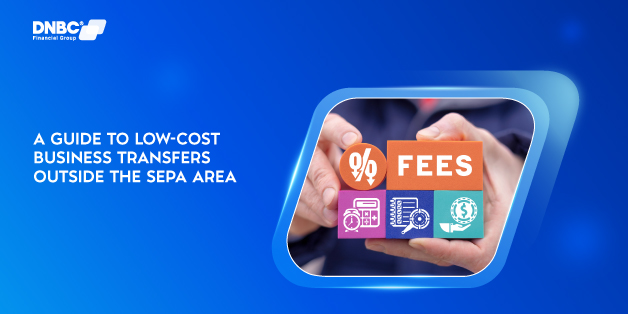- Home
- Blog
- Business Finance
- Finance Tips For Small Business Owners - All You Need To Know
Finance Tips For Small Business Owners - All You Need To Know
Business Finance
18 March 2023
DNBC Team
This article is a part of DNBCGroup Blog Center
Contact DNBCGroup for the technology news, tips, trends, and updates.
Starting and running a small business can be a daunting task, and one of the biggest challenges for entrepreneurs is managing finances. Many small business owners struggle with financial management, which can lead to cash flow problems, missed payments, and even bankruptcy. However, with some basic financial knowledge and good habits, you can avoid financial pitfalls and ensure the long-term success of your small business. In this article, DNBC Financial Group’s experts will provide some finance tips for small business owners that can help you manage your finances effectively and grow your business.

Finance tips for small business owners - All you need to know
5 Finance tips for small business owners
Create a Budget
Creating a budget is one of the most important financial tasks for small business owners. A budget helps you to plan your expenses and allocate your resources more effectively. It also helps you to identify areas where you can cut costs and save money.
To create a budget, start by listing your fixed expenses such as rent, salaries, and utilities. Then, list your variable expenses such as advertising, supplies, and maintenance. Finally, list your revenue sources such as sales, investments, and loans.
Once you have a clear picture of your income and expenses, you can use a spreadsheet or a budgeting app to track your spending and ensure that you stay within your budget.
Manage Cash FlowCash flow is the lifeblood of any small business. It is the amount of cash that flows in and out of your business over a specific period. It is essential to manage your cash flow effectively to avoid cash shortages and ensure that you can pay your bills on time.
To manage your cash flow, you can use cash flow forecasting. This involves estimating the amount of cash that will be coming in and going out of your business in the coming weeks or months. With this information, you can identify any potential cash shortfalls and take steps to address them.
You can also improve your cash flow by invoicing promptly, offering early payment discounts, negotiating payment terms with your suppliers, and managing your inventory efficiently.
Separate Personal and Business FinancesOne common mistake that small business owners make is mixing their personal and business finances. This can make it difficult to track your expenses, and it can also create tax problems down the line.
To avoid this, open a separate bank account for your business and use it exclusively for your business transactions. This will make it easier to track your income and expenses, and it will also make it easier to prepare your taxes.
You should also consider getting a separate credit card for your business. This will make it easier to track your business expenses and build your business credit score.
At DNBC Financial Group, our business account service allows you to manage your money anytime and anywhere via the DNBCnet app and website. Moreover, we also allow you to transfer and receive money without limitation to foreign countries.
Monitor Your Credit ScoreYour credit score is an important factor that lenders consider when deciding whether to lend you money or extend credit to your business. A good credit score can help you to secure better financing terms and lower interest rates.
To monitor your credit score, you can use credit monitoring services or obtain a free credit report from the major credit bureaus. If you notice any errors or discrepancies in your credit report, you should dispute them immediately.
To improve your credit score, you can pay your bills on time, keep your credit utilization ratio low, and avoid applying for too much credit at once.
Business tips for small business owners from DNBC Financial Group
Starting a small business can be both exciting and challenging, and it takes more than just a great idea to turn it into a successful venture. As a small business owner, there are several business tips that you can use to grow and scale your business.
Have a clear vision and plan:The first step to success in business is to have a clear vision of what you want to achieve and a well-defined plan on how to achieve it. Your plan should include your business objectives, target market, marketing strategies, and financial projections.Know your target market: To grow your business, you need to understand your target market's needs and preferences. Conduct market research to find out what your potential customers are looking for and tailor your products or services to meet their needs.Build a strong online presence: In today's digital age, having a strong online presence is crucial to the success of any business. Create a website and social media accounts for your business and use them to engage with your customers, showcase your products or services, and build your brand.Focus on customer service: Good customer service is key to building customer loyalty and growing your business. Make sure you provide excellent customer service by responding promptly to customer inquiries and complaints, delivering quality products or services, and going above and beyond to meet your customers' needs.Monitor your finances: As a small business owner, it's important to keep a close eye on your finances. Track your expenses, monitor your cash flow, and regularly review your financial statements to ensure your business is on track to meet its financial goals.Tax saving tips for small business owners
As a small business owner, saving on taxes can be a crucial aspect of your financial planning. While it's important to pay your fair share of taxes, there are several ways to legally minimize your tax liability. Here are some tax-saving tips for small business owners:
Keep Accurate Records: Keeping detailed records of all business transactions and expenses is essential for minimizing your tax liability. Accurate records will allow you to claim all eligible deductions, which can reduce your taxable income and lower your overall tax bill.Deduct Business Expenses: Small business owners are allowed to deduct legitimate business expenses, such as rent, office supplies, equipment, travel expenses, and salaries paid to employees. Make sure to keep receipts and records of all business-related expenses.Hire a Professional: Navigating the complexities of the tax code can be challenging, even for the most financially savvy business owners. Consider hiring a tax professional to help you identify tax-saving opportunities and ensure compliance with tax laws. A tax professional can also help you plan for the future and make strategic financial decisions.Timing is KeyTiming is essential when it comes to taxes. Consider the timing of expenses and income to optimize your tax savings. For example, if you have a significant expense, such as equipment or inventory, consider purchasing it at the end of the year to take advantage of deductions. Additionally, delaying income until the next year may reduce your taxable income.
About DNBC Financial Group
DNBC Financial Group is a global financial organization that provides business and individual clients with a sophisticated digital payment system, a useful payment platform, and a global online money transfer.
The mission of DNBC Financial Group is to simplify daily business operations, automate international financial transactions, and ensure that customers always meet their payment deadlines.
Your Trusted Partner
In your Digital
Journey
Free 1 - on -1 support
Free account opening fees
No hidden fees
Note: The content in this article is for general informative purposes only. You should conduct your own research or ask for specialist advice before making any financial decisions. All information in this article is current as of the date of publication, and DNBC Financial Group reserves the right to modify, add, or remove any information. We don’t provide any express or implied representations, warranties, or guarantees regarding the accuracy, completeness, or currency of the content within this publication.
Related posts

A Guide to Low-Cost Business Transfers Outside the SEPA Area
04 July 2025

How to Set Up a Business Escrow Account: A Simple Guide
20 June 2025

Cross-Border Business: Opportunities and Challenges in the Global Marketplace
23 May 2025

The Best Way to Pay Overseas Suppliers: A Complete Guide for Global Businesses
22 May 2025

Real Time Cross Border Payments: Shaping the Future of Global Financial Transactions
22 May 2025